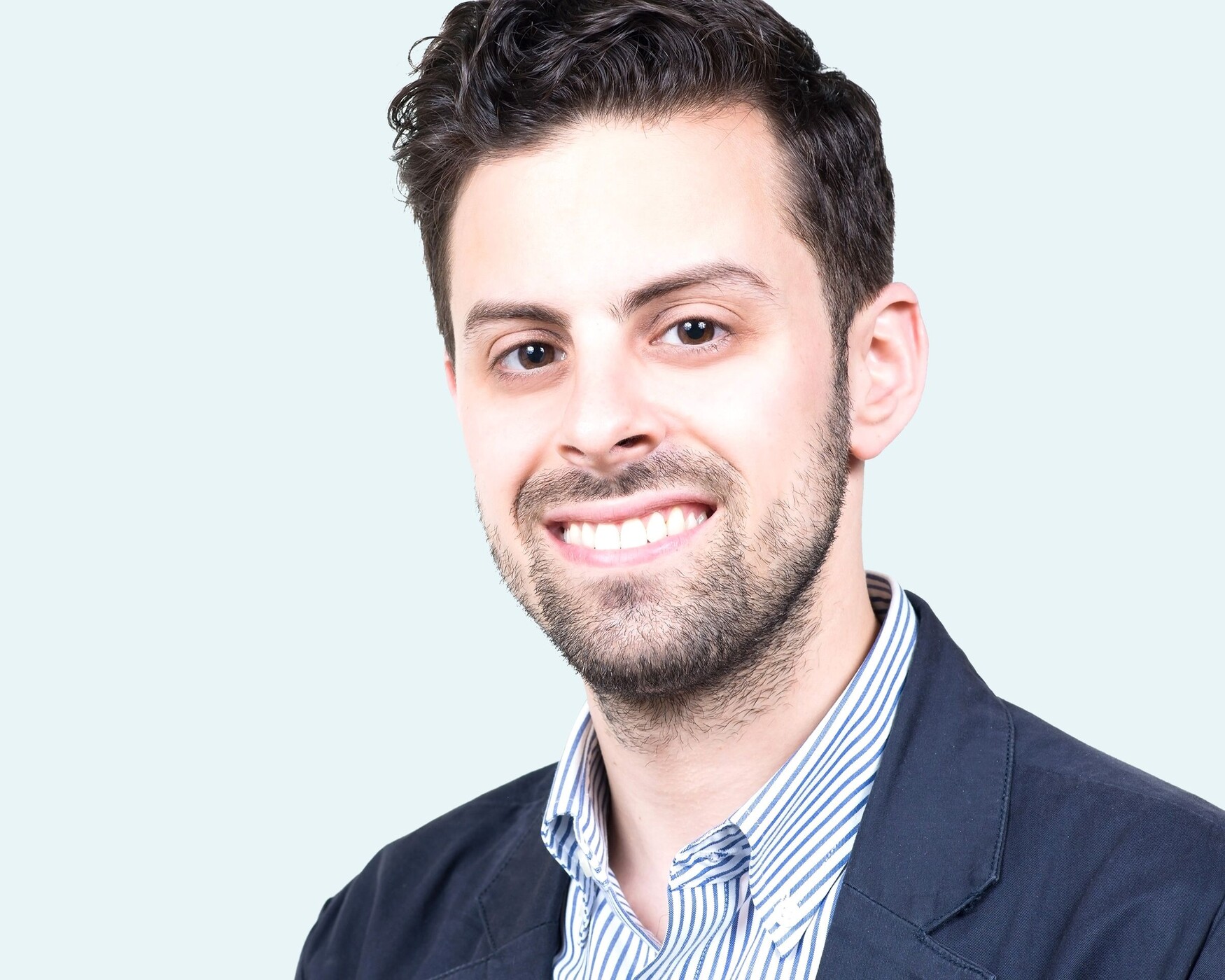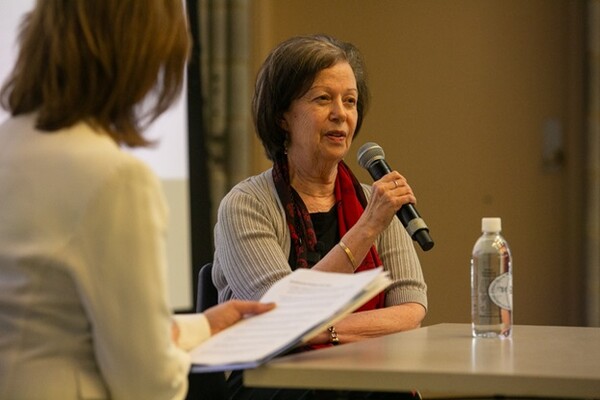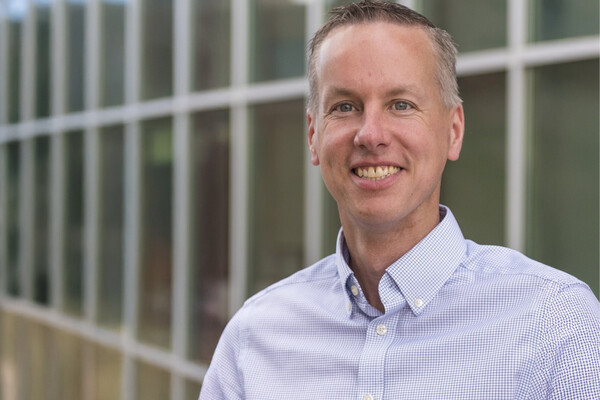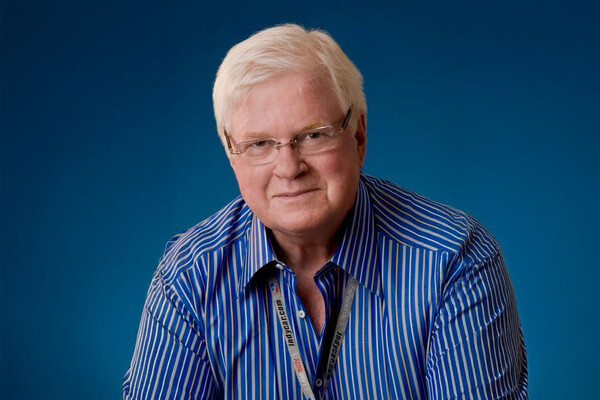Main Second Level Navigation
Breadcrumbs
- Home
- News & Events
- Recent News
- Genomes and Start-Ups: David Caplan, MSc'12
Genomes and Start-Ups: David Caplan, MSc'12

David Caplan, MSc’12 (Biochemistry) is Chief Technology Officer & Cofounder of SolveBio, a genomic intelligence company. He is both a web developer and computational biologist. Prior to founding SolveBio, David cofounded 5by, a video discovery platform since acquired by StumbleUpon.
I learned about scientific rigor and being critical about scientific analysis. That’s what I took away most: what it means to do science.
You’re only 30, but you’re already a serial entrepreneur, tell me about SolveBio.
We see ourselves as a knowledge hub for genetics. One of the biggest problems in genetic research right now is that there is information all over the place — in different databases all over the world. Imagine a large company that has been around for 100 years and has tens of thousands of scientists studying actual patients and developing treatments for cancer and rare diseases. They have all this internal data they’re scrambling to bring together in one place so their knowledge can be shared. Our software platform brings it together within a knowledge-base for scientific organizations trying to interpret the genome. We’re developing a system that allows them to manage it and share it and grow it.
I’ve been involved in a number of start-ups, but SolveBio is the perfect fit for me, given my background. I’ve always been a computer nerd and knew I wanted to combine computer science with something else. An emerging field, genetics seemed like a good way to apply my computer science skills to health. SolveBio is a combination of intense engineering, design, and genetics. Essentially, we enable others to use genetic information to improve health.
How is the start-up doing?
We are 12 people so far — including engineers, scientists, designers, and sales specialists. I am the CTO, so I manage the technical side. One of the biggest challenges in this industry is enabling engineers to talk to scientists. Engineering is very systematic and well-understood, whereas genetics is just the opposite — it is about observing nature and things that are not well-defined. Depending on who you talk to, scientists will have different opinions on what things mean and what is important. So one of our biggest challenges is designing a system that’s based on engineering but allows scientists to feel comfortable in an environment where things are not well defined.
We’ve worked with companies of all sizes — research hospitals, huge top-ten pharma companies, clinical labs, clinical diagnostic companies, and consumer genetic testing companies. It’s quite incredible to be able to provide expertise for these major clients, considering we’re such a small company.
You did your MSc at U of T — what attracted you?
I am originally from Montreal and I went to the University of Calgary for my undergrad, where I studied bioinformatics. At that time, the genome had just been sequenced and all kinds of interesting things were happening. After graduating, I went to California to work at a tech start up that provided scientists with a tool to organize their literature online. Soon after I started, though, the stock market crashed and then the recession; I knew the company was running out of money and I had to decide what I was going to do next.
I had worked in a lab in Calgary and had a good relationship with my old supervisor (Dr. Sergei Noskov), who recommended a Prof at U of T named Régis Pomès. He works on structural biology and computational biology. While I came to U of T mostly for him, I knew that U of T was a good school and I had a lot of friends there.
What skills did your studies at U of T give you to succeed?
What I liked about doing my master’s at U of T was that there wasn’t very much mandatory course work. It was very research oriented, so I had the opportunity to work with researchers in my lab and do very real experimental work. I learned about scientific rigor and being critical about scientific analysis. That’s what I took away most: what it means to do science. And it’s something you have to learn by doing and by being around people who are serious about it.
SolveBio provides information to companies that need real, trustworthy information. We need to ensure our information is being transmitted to them and stored securely and also that it is correct. I know the people on the other end are scientists and they are looking at our data with a critical eye. So understanding the scientific mindset of our customers is important to what I do.
What is your fondest memory of your time at U of T?
I really liked that the research at U of T is very hands-on. We were in the hospital and near patients. I felt like I was right in the middle of the action. I found that environment motivating. Just being around thousands of other researchers was very cool — everyone was very passionate. And there were always interesting talks going on.
What are the next big challenges you’ll be taking on?
SolveBio is my big challenge right now, so I’m focused on this. There are so many challenges on a day-to-day basis at a startup, but I think the biggest one for us will be getting to a place in our business where we can grow the company. We need to build a team of people from different disciplines and make sure they can communicate with each other effectively. This is the hardest thing to do in any business, but especially in a business that has multiple orientations in engineering, science, and design.
News


